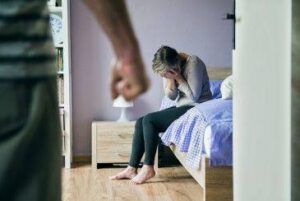Domestic violence is a pervasive problem that affects millions of people every year. It can happen to anyone, regardless of their race, gender, or socioeconomic status. In Virginia, domestic violence is a serious crime that carries significant legal and social consequences.
In this blog post, we’ll explore what is considered domestic violence in Virginia, how it’s defined, and what you can do if you or someone you know is a victim of domestic violence.
What is Domestic Violence?
Domestic violence is a pattern of behavior that one person uses to gain and maintain power and control over another person in an intimate relationship. It can include physical, emotional, sexual, or financial abuse, and it can occur in any type of relationship, including marriages, dating relationships, and same-sex partnerships.
In Virginia, domestic violence is defined as any act involving violence, force, or threat that results in bodily injury or places one in fear of serious bodily injury or death. This includes assault, battery, sexual assault, and stalking.
What are the Types of Domestic Violence in Virginia?
In Virginia, there are several different types of domestic violence that can occur, including:
- Physical Abuse: This includes hitting, slapping, punching, choking, or any other form of physical violence.
- Sexual Abuse: This includes any sexual activity that is forced, coerced, or unwanted.
- Emotional Abuse: This includes verbal abuse, intimidation, manipulation, and other forms of emotional control.
- Financial Abuse: This includes controlling someone’s finances, denying them access to money, or using money to control them.
- Stalking: This includes following, harassing, or threatening someone in a way that causes fear.
What are the Legal Consequences of Domestic Violence in Virginia?
In Virginia, domestic violence is a serious crime that carries significant legal consequences. Depending on the severity of the offense, a person convicted of domestic violence may face:
- Jail time
- Fines
- Probation
- Community service
- Mandatory counseling or therapy
- Restraining orders or protective orders
In addition to the legal consequences, domestic violence can have significant social consequences, including the loss of friends and family members, job loss, and the loss of custody or visitation rights with children.
What Should You Do If You’re a Victim of Domestic Violence?
If you’re a victim of domestic violence in Virginia, there are several things you can do to protect yourself and get help. These include:
- Call 911: If you’re in immediate danger, call 911 right away.
- Get to a Safe Place: If you’re able to do so safely, leave the situation and go to a safe place, such as a friend’s house or a shelter.
- Contact a Domestic Violence Hotline: There are several domestic violence hotlines available in Virginia that can provide you with support and guidance.
- Seek Medical Attention: If you’ve been injured, seek medical attention right away.
- Contact an Attorney: An attorney can help you understand your legal options and protect your rights.
It’s important to note that if you’re a victim of domestic violence, it’s not your fault. You don’t deserve to be treated this way, and you have the right to seek help and protection. It’s also important to understand that domestic violence can happen to anyone, regardless of their gender or sexual orientation.
If you’re concerned about someone else who may be a victim of domestic violence, there are also things you can do to help. You can:
- Listen and Believe: If someone comes to you with concerns about domestic violence, listen to them and believe them. Don’t dismiss their concerns or tell them it’s not that bad.
- Offer Support: Let the person know that you’re there for them and that you want to help.
- Don’t Judge: It’s important not to judge the person for staying in the relationship or for any decisions they make. They’re in a difficult situation, and they need support, not judgment.
- Encourage Professional Help: Encourage the person to seek professional help, such as a therapist, a domestic violence advocate, or an attorney.
- Report Abuse: If you witness abuse or suspect that abuse is happening, report it to the police.
At NovaLegalGroup, P.C., we understand that domestic violence is a serious problem in Virginia, and we are committed to providing legal representation and support to victims of domestic violence. We can help you obtain protective orders, navigate divorce and separation proceedings, provide criminal defense representation, and connect you with counseling and therapy resources to help you cope with the trauma of domestic violence.
We know that each domestic violence case is unique, and we take the time to understand your specific situation and provide you with tailored legal advice and guidance. Our experienced attorneys are dedicated to protecting your rights and helping you get the legal protection and support you need.
If you or someone you know is a victim of domestic violence in Virginia, we are here to help. Contact us today to schedule a consultation and learn more about how we can assist with your case.
